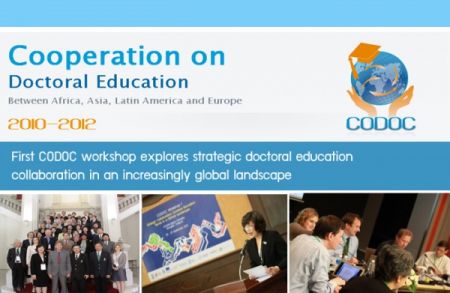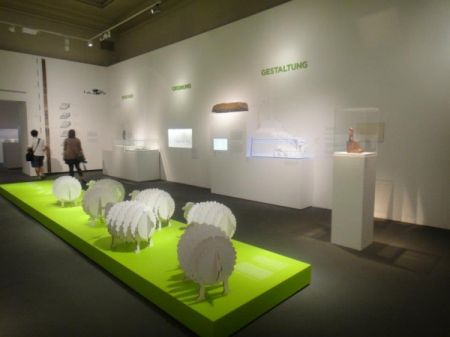In our Selected Exhortations category, we republish interesting stuff such as must-read articles and essays not originally written exclusively for the blawg, and which have come to our attention. Please feel free to email [email protected] if you would like to reproduce your writing, but first follow our Writer’s Guide here.
This article was first published in the Malaysian Insider under Sideviews on Dec 20. This version contains some additional rants that merely reinforce what is already there.
Malaysia has been trying to move up the knowledge economy ladder, given that we are losing out on “cheap” manual labour to the other rising economies around the region and nearby.
However, we are not entirely sure as to how exactly should that knowledge economy look like. For example, there is very little support provided to those who desire to pursue post-graduate education abroad and then return home to contribute outside that of the utilitarian sciences and practical arts, and especially at the doctoral level.
According to the initiative of MyBrain15, there is a goal of creating 60,000 PhD graduates by 2023, with priority given to science and technology fields (with no mention or acknowledgement of the humanities and social sciences in its e-brochure).
However, it is unclear as to the real criteria of selection, and how they intend to pursue this in collaboration with possible foreign partners, given how Malaysia’s higher education agents lack real collaboration and connection with most foreign institutions.
In my experience of six years ago, before the launch of this specific programme, the selection process for funding PhD level work has been shrouded in bureaucracy, discriminatory (and preferential) practices and incompetence.
In addition, there is little resource guidance, except for those who are resourceful or already possess that insider knowledge, on how to start looking and ask the right questions in the process of applying and getting into suitable departments and institutions.

Unlike its immediate neighbour of Singapore, most Malaysian institutions of higher education (especially the public ones) do not put in much effort to attract qualified (and quality) locals and foreigners alike to become members of their institutions, whether as academics or graduate students.
Even educational exchanges within ASEAN have become almost non-existent, especially as funds that promote academic exchanges within the region have started to dry up and are not renewed.
We also do not attempt to learn more about the educational practices of countries outside the Anglo world (beyond the bare minimal required to send some of our students to these countries) and find out more about various educational practices so that the more successful and suitable ones can be adapted to the local landscape.

Of course, such due diligence requires a lot of hard work and research that many of the people tasked with such work are not equipped to do. It also involves much soul-searching as to the sort of educational and knowledge values that we desire to promote. We build spanking new buildings and even allow private corporations onto our campus grounds, but not follow that through with well-stocked libraries (that comes with open access, seeing how these public institutions are funded by public monies), strong research networks, better teaching and mentorship, and other supporting facilities that will enhance the experience of learning and intellectual labour. We don’t try to increase and enlarge the capacities of academic departments.

We allow the power of decision making to be held by those who have little inkling as to what involved in the development of world-class institutions of higher learning, and, therefore, the creation of an educational institution of higher learning that will then build strong ties, as well as has accountability and commitment to the community that it is a part of.
Finally, we spend much of our energies criticising the practices of other more developed countries (especially the US) over their attitudes of supremacy, hypocrisy, racism, xenophobia, bigotry, discrimination, over-consumption, wastefulness, provincialism, corporatism and false sense of entitlement, all the while failing to notice similar behaviour and practices in our own playground. We also do not seem to be learning from what is failing in these countries, but attempt to emulate them without reflection. Good education does not lie, primarily, in the possession of the highest form of technology, but requires much creativity, planning, and reflection from the teacher. Even if you have the most expensive facilities and infrastructures around, which seems to be the route Malaysia is intend on going, the lack of necessary wetware means that all one has to show for is a lot of bling and brawn, and none of the latter two traits will mature as gracefully.
Moreover, we did not attempt to emulate some of the better traditions, which are today also under threat: educational philanthropy, dedication to learning and cultural advancement, a liberal arts education, funding for research into all areas critical and less critical, a sense of adventure in innovation and thinking outside the box, and a consummate desire to make information and knowledge accessible.
We could do all these while also privileging the accumulation and transmission of our own forgotten and less-researched histories and local/regional knowledge, while keeping a diligent eye out, and be participant of, other world knowledges.
Clarissa Lee is currently a PhD candidate at Duke, trying to finish her dissertation. She is also a product of a local public university. She tweets as @normasalim and runs an occasional personal blog at scandalousthoughts.wordpress.com.


HI Haziq. Sorry for the daily in response but to reply to your question, I don't really know. Could be a bit of everything or just pure idiotic bureaucracy. Anyhow, I never pursued it further since I went abroad the year after, on my own terms.
a good article,…i would like to know more bout what discrimination or preferential treatment u faces when applying to do phd? was it racial discrimination as always?